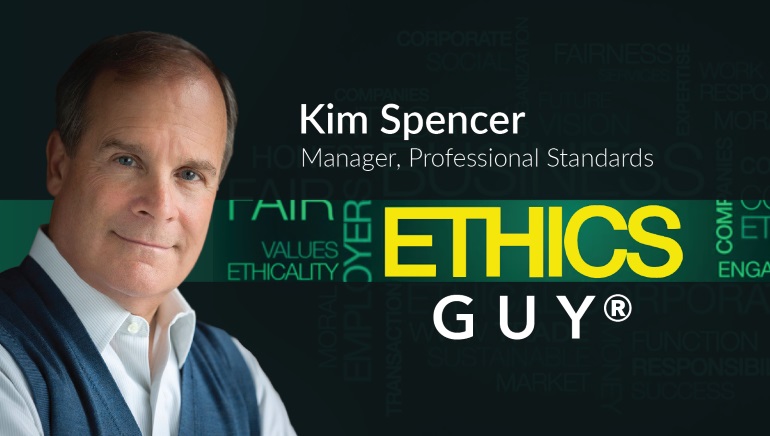Ethics Guy®: Lawful versus "not cool"

Laws, regulator requirements, and our standards are written documents and easy to find. For example, you can go to the REALTOR® Code of Ethics or Rules of Cooperation, scroll to the appropriate standards and read what they have to say.
Ditto for BC Financial Services Authority’s Rules and the Real Estate Services Act.
As well, there’s a thicket of other written statutes and requirements governing what we do. If there’s a rule or a law, deciding what to do can be quite easy. Just follow the requirement and carry on. I think that’s why we often say things like, “we need a rule for that.” It makes things easy. You don’t have to think.
But sometimes there is no law, a rule isn’t clear, or a standard is open to some interpretation. That’s when things can get exciting. The lawyers may weigh in. Or regulatory advisors. Or someone like me. Or someone with the loudest voice on a chat site. (That’s okay; everyone can have an opinion but be careful who you listen to.)
In these “grey” situations, before you act, remind yourself who your client is and what your agency duties are. Give a thought to your reputation, as well as to the collective reputation of the profession. We’ve all got skin in the game for what we do. We’re judged by the public’s collective experience of us. You could also try asking yourself whether you’d be embarrassed if others were to find out what you just did (or are thinking of doing).
I’m talking about those actions that are lawful and don’t break any rules, but that your colleagues and probably their clients consider as being “not cool.” Which is another way of saying, “It may be legal, but what you just did sucks.”
It can be tough to defend yourself in the public square by arguing, “Hey, what’s your problem? What I did was legal.” You might be technically right, but you won’t be convincing. It’s an example of winning the battle but losing the war.
Remember those 20 or so Canadian politicians who ignored provincial health officer guidelines and left the country for a holiday last Christmas? Understandably, some Canadians (maybe many) were indignant. “WTH,” they said. “We’re all hunkered down at home, not seeing our families and these clowns ignored what the government was asking and left town for a holiday.” It didn’t play well, as they say. A few of those politicians defended themselves by saying they hadn’t actually broken the law, so what was the problem? “The health officers’ wishes were just guidelines, after all,” they said. This argument didn’t play well.
In our recent federal election, one candidate’s history of flipping properties for profit (before he stood for office) became a topic of conversation. Flipping properties for profit is legal. But given that some, maybe many, think flipping properties contributes to the high cost of housing, the candidate’s actions caused a kerfuffle. “Well, it may have been legal but it wasn’t cool, especially when your party’s platform had lots to say about housing affordability,” seemed to be the collective reply. To the candidate’s credit, he didn’t try to defend himself by arguing what he did was legal, but I suspect he probably had a few uncomfortable days before being elected with this issue in the spotlight.
There’s a good lesson for us all in here. We’re in a profession. Professionals are expected to look after their clients, to be competent, and to have an eye for the public good. Doing something that isn’t a breach but casts a negative light on the profession doesn’t help improve our 45 to 50 per cent approval rating.
Saying, “I didn’t break the law” or “I met the minimum legal standard” just doesn’t cut it. Is that what you want written as your epitaph? How proud would you be if your headstone said, “Not a bad person, they didn’t break the law”? Is that the best we can do? Let’s aim higher. Other professions do.
Top tip: Article index available
In a recent conversation, a managing broker suggested that since not all members read this column (perish the thought) it would be handy to have a quick reference guide to all the articles I’ve written on delayed offers, DRPOS, and the like. Do you know my trusty copy editor and indexer Teresa (a UBC School of Information Science, SFU tech writing, and Harvard journalism graduate), has indexed every column I’ve ever written since 2006? You can access the index online.
Rules of Cooperation, Rule 4.02 governs delayed offer requirements as well as the protocol to follow if an early offer comes in. Since the rule has been amended at least twice during the past five years, I’d recommend reading articles on the subject written in 2018 or later (preferably, the latest one, written September 8, 2021).